Fleurs du Mal Magazine


Or see the index
.jpg)
E m i l y D i c k i n s o n
(1830-1886)
Almost!
Within my reach!
I could have touched!
I might have chanced that way!
Soft sauntered through the village,
Sauntered as soft away!
So unsuspected violets
Within the fields lie low,
Too late for striving fingers
That passed, an hour ago.
.jpg)
Poem of the week – November 8, 2009
k e m p i s p o e t r y m a g a z i n e
More in: Archive C-D, Dickinson, Emily
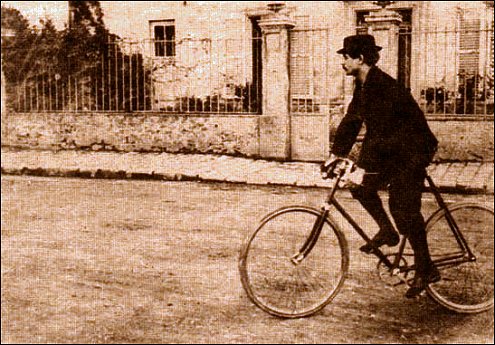
Alfred Jarry
(1873-1907)
Le vélin écrit rit et grimace, livide
Le vélin écrit rit et grimace, livide.
Les signes sont dansants et fous. Les uns, flambeaux,
Pétillent radieux dans une page vide.
D’autres en rangs pressés, acrobates corbeaux,
Dans la neige épandue ouvrent leur bec avide.
Le livre est un grand arbre émergé des tombeaux.
Et ses feuilles, ainsi que d’un sac qui se vide,
Volent au vent vorace et partent par lambeaux.
Et son tronc est humain comme la mandragore ;
Ses fruits vivants sont les fèves de Pythagore ;
Des feuillets verdoyants lui poussent en avril.
Et les prédictions d’or qu’il emmagasine,
Seul le nécromant peut les lire sans péril,
La nuit, à la lueur des torches de résine.
Madrigal
Ma fille – ma, car vous êtes à tous,
Donc aucun d’eux ne fut valable maître,
Dormez enfin, et fermons la fenêtre :
La vie est close, et nous sommes chez nous.
C’est un peu haut, le monde s’y termine
Et l’absolu ne se peut plus nier ;
Il est si grand de venir le dernier
Puisque ce jour a lassé Messaline,
Vous voici seule et d’oreilles et d’yeux,
Tomber souvent désapprend de descendre.
Le bruit terrestre est loin, comme la cendre
Gît inconnue à l’encens bleu des dieux.
Tel le clapotis des carpes nourries
A Fontainebleau
A des voix meurtries
De baisers dans l’eau.
Comment s’unit la double destinée ?
Tant que je n’eus point pris votre trottoir
Vous étiez vierge et vous n’étiez point née,
Comme un passé se noie en un miroir.
La boue à peine a baisé la chaussure
De votre pied infinitésimal,
Et c’est d’avoir mordu dans tout le mal
Qui vous a fait une bouche si pure.
Le bain du roi
Rampant d’argent sur champ de sinople, dragon
Fluide, au soleil de la Vistule se boursoufle.
Or le roi de Pologne, ancien roi d’Aragon,
Se hâte vers son bain, très nu, puissant maroufle.
Les pairs étaient douzaine : il est sans parangon.
Son lard tremble à sa marche et la terre à son souffle ;
Pour chacun de ses pas son orteil patagon
Lui taille au creux du sable une neuve pantoufle.
Et couvert de son ventre ainsi que d’un écu
Il va. La redondance illustre de son cul
Affirme insuffisant le caleçon vulgaire
Où sont portraicturés en or, au naturel,
Par derrière, un Peau-Rouge au sentier de la guerre
Sur un cheval, et par devant, la Tour Eiffel.

• fleursdumal.nl magazine
More in: Archive I-J, Archive I-J, Jarry, Alfred, OULIPO (PATAFYSICA)
.jpg)
W i l l i a m S h a k e s p e a r e
(1564-1616)
T H E S O N N E T S
4
Unthrifty loveliness why dost thou spend,
Upon thy self thy beauty’s legacy?
Nature’s bequest gives nothing but doth lend,
And being frank she lends to those are free:
Then beauteous niggard why dost thou abuse,
The bounteous largess given thee to give?
Profitless usurer why dost thou use
So great a sum of sums yet canst not live?
For having traffic with thy self alone,
Thou of thy self thy sweet self dost deceive,
Then how when nature calls thee to be gone,
What acceptable audit canst thou leave?
Thy unused beauty must be tombed with thee,
Which used lives th’ executor to be.
![]()
k e m p i s p o e t r y m a g a z i n e
More in: -Shakespeare Sonnets
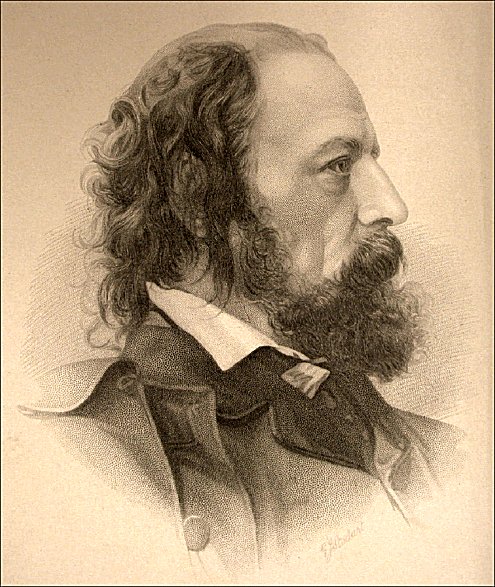
Alfred Lord Tennyson
(1809-1892)
F a t i m a
O Love, Love, Love! O withering might!
O sun, that from thy noonday height
Shudderest when I strain my sight,
Throbbing thro’ all thy heat and light,
Lo, falling from my constant mind,
Lo, parch’d and wither’d, deaf and blind,
I whirl like leaves in roaring wind.
Last night I wasted hateful hours
Below the city’s eastern towers:
I thirsted for the brooks, the showers:
I roll’d among the tender flowers:
I crush’d them on my breast, my mouth:
I look’d athwart the burning drouth
Of that long desert to the south.
Last night, when some one spoke his name,
From my swift blood that went and came
A thousand little shafts of flame.
Were shiver’d in my narrow frame
O Love, O fire! once he drew
With one long kiss, my whole soul thro’
My lips, as sunlight drinketh dew.
Before he mounts the hill, I know
He cometh quickly: from below
Sweet gales, as from deep gardens, blow
Before him, striking on my brow.
In my dry brain my spirit soon,
Down-deepening from swoon to swoon,
Faints like a dazzled morning moon.
The wind sounds like a silver wire,
And from beyond the noon a fire
Is pour’d upon the hills, and nigher
The skies stoop down in their desire;
And, isled in sudden seas of light,
My heart, pierced thro’ with fierce delight,
Bursts into blossom in his sight.
My whole soul waiting silently,
All naked in a sultry sky,
Droops blinded with his shining eye:
I ‘will’ possess him or will die.
I will grow round him in his place,
Grow, live, die looking on his face,
Die, dying clasp’d in his embrace.
.jpg)
Alfred Lord Tennyson poetry
k e m p i s p o e t r y m a g a z i n e
More in: Tennyson, Alfred Lord
.jpg)
Der Nachhauseweg
Franz Kafka (1883-1924)
Man sehe die Überzeugungskraft der Luft nach dem Gewitter! Meine Verdienste erscheinen mir und überwältigen mich, wenn ich mich auch nicht sträube. Ich marschiere und mein Tempo ist das Tempo dieser Gassenseite, dieser Gasse, dieses Viertels. Ich bin mit Rechterantwortlich für alle Schläge gegen Türen, auf die Platten der Tische, für alle Trinksprüche, für die Liebespaare in ihren Betten, in den Gerüsten der Neubauten, in dunklen Gassen an die Häusermauern gepreßt, auf den Ottomanen der Bordelle.
Ich schätze meine Vergangenheit gegen meine Zukunft, finde aber beide vortrefflich, kann keiner von beiden den Vorzug geben und nur die Ungerechtigkeit der Vorsehung, die mich so begünstigt, muß ich tadeln.
Nur als ich in mein Zimmer trete, bin ich ein wenig nachdenklich, aber ohne daß ich während des Treppensteigens etwas Nachdenkenswertes gefunden hätte. Es hilft mir nicht viel, daß ich das Fenster gänzlich öffne und daß in einem Garten die Musik noch spielt.
.jpg)
Franz Kafka: Betrachtung 1913 – Für M.B.
fleursdumal.nl magazine
More in: Franz Kafka, Kafka, Franz, Kafka, Franz
.jpg)
R o b e r t B r o w n i n g
(1812-1889)
O L y r i c L o v e
O lyric Love, half angel and half bird,
And all a wonder and a wild desire–
Boldest of hearts that ever braved the sun,
Took sanctuary within the holier blue,
And sang a kindred soul out to his face–
Yet human at the red-ripe of the heart–
When the first summons from the darkling earth
Reached thee amid thy chambers, blanched their blue,
And bared them of the glory–to drop down,
To toil for man, to suffer or to die–
This is the same voice; can thy soul know change?
Hail then, and hearken from the realms of help!
Never may I commence my song, my due
To God who best taught song by gift of thee,
Except with bent head and beseeching hand–
That still, despite the distance and the dark,
What was, again may be; some interchange
Of grace, some splendor once thy very thought,
Some benediction anciently thy smile:
–Never conclude, but raising hand and head.
Thither where eyes, that cannot reach, yet yearn
For all hope, all sustainment, all reward,
Their utmost up and on–so blessing back
In those thy realms of help, that heaven thy home,
Some whiteness which, I judge, thy face makes proud,
Some wanness where, I think, thy foot may fall!
.jpg)
Robert Browning Poetry
k e m p i s p o e t r y m a g a z i n e
More in: Browning, Robert
.jpg)
W i l l i a m S h a k e s p e a r e
(1564-1616)
T H E S O N N E T S
3
Look in thy glass and tell the face thou viewest,
Now is the time that face should form another,
Whose fresh repair if now thou not renewest,
Thou dost beguile the world, unbless some mother.
For where is she so fair whose uneared womb
Disdains the tillage of thy husbandry?
Or who is he so fond will be the tomb,
Of his self-love to stop posterity?
Thou art thy mother’s glass and she in thee
Calls back the lovely April of her prime,
So thou through windows of thine age shalt see,
Despite of wrinkles this thy golden time.
But if thou live remembered not to be,
Die single and thine image dies with thee.
![]()
k e m p i s p o e t r y m a g a z i n e
More in: -Shakespeare Sonnets

A l f o n s i n a S t o r n i
(1892-1938)
Parásitos
Jamás pensé que Dios tuviera alguna forma.
Absoluta su vida; y absoluta su norma.
Ojos no tuvo nunca: mira con las estrellas.
Manos no tuvo nunca: golpea con los mares.
Lengua no tuvo nunca: habla con los centellas.
Te diré, no te asombres;
Sé que tiene parásitos: las cosas y los hombres.
![]()
fleursdumal.nl magazine
More in: Archive S-T, Storni, Alfonsina
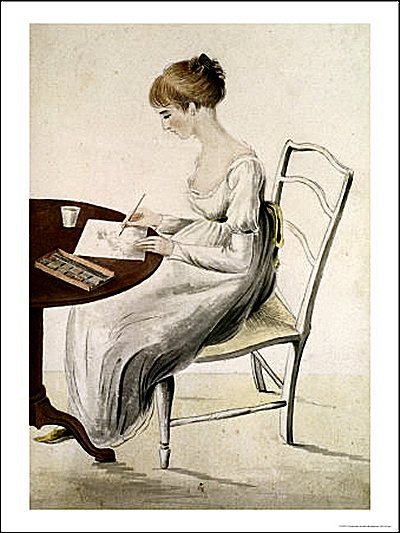
J a n e A u s t e n
(1775 – 1817)
Of A Ministry Pitiful, Angry, Mean
Of a Ministry pitiful, angry, mean,
A gallant commander the victim is seen.
For promptitude, vigour, success, does he stand
Condemn’d to receive a severe reprimand!
To his foes I could wish a resemblance in fate:
That they, too, may suffer themselves, soon or late,
The injustice they warrent. But vain is my spite
They cannot so suffer who never do right.
.jpg)
More in: Archive A-B, Austen, Jane, Austen, Jane
.jpg)
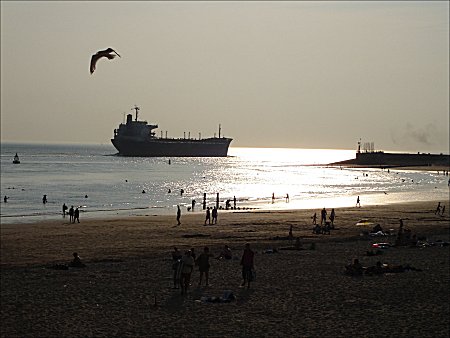
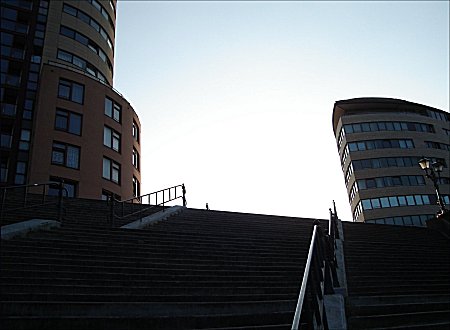

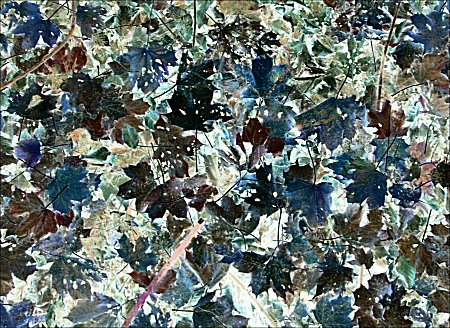
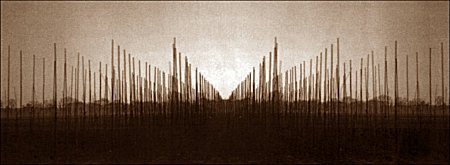
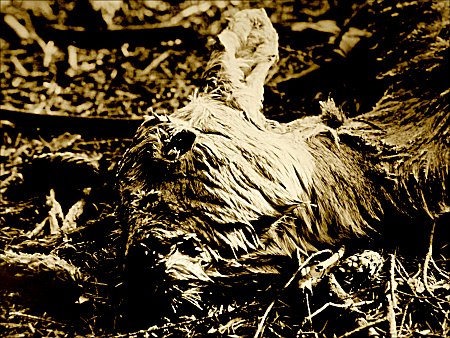
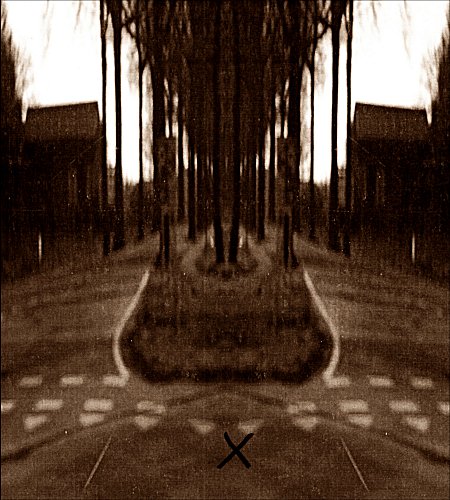
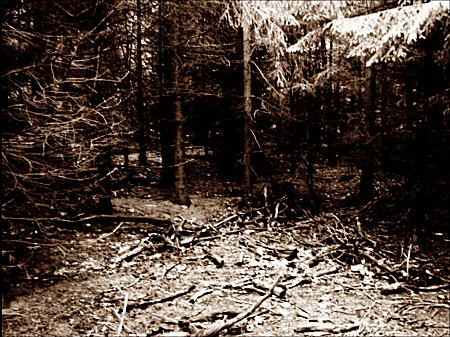
jef van kempen: 8 photos
fleursdumal.nl magazine
© fdm
m u s e u m o f l o s t c o n c e p t s
More in: Dutch Landscapes, Jef van Kempen, Jef van Kempen Photos & Drawings, Kempen, Jef van
.jpg)

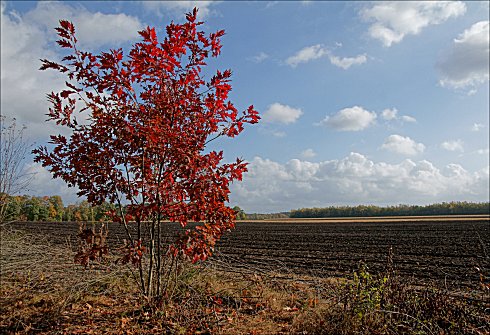
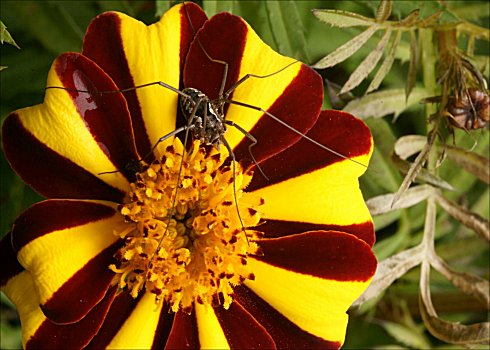
J o h n K e a t s
(1795-1821)
T o A u t u m n
Season of mists and mellow fruitfulness,
Close bosom-friend of the maturing sun;
Conspiring with him how to load and bless
With fruit the vines that round the thatch-eves run;
To bend with apples the moss’d cottage-trees,
And fill all fruit with ripeness to the core;
To swell the gourd, and plump the hazel shells
With a sweet kernel; to set budding more,
And still more, later flowers for the bees,
Until they think warm days will never cease,
For Summer has o’er-brimm’d their clammy cells.
Who hath not seen thee oft amid thy store?
Sometimes whoever seeks abroad may find
Thee sitting careless on a granary floor,
Thy hair soft-lifted by the winnowing wind;
Or on a half-reap’d furrow sound asleep,
Drows’d with the fume of poppies, while thy hook
Spares the next swath and all its twined flowers:
And sometimes like a gleaner thou dost keep
Steady thy laden head across a brook;
Or by a cyder-press, with patient look,
Thou watchest the last oozings hours by hours.
Where are the songs of Spring? Ay, where are they?
Think not of them, thou hast thy music too,–
While barred clouds bloom the soft-dying day,
And touch the stubble-plains with rosy hue;
Then in a wailful choir the small gnats mourn
Among the river sallows, borne aloft
Or sinking as the light wind lives or dies;
And full-grown lambs loud bleat from hilly bourn;
Hedge-crickets sing; and now with treble soft
The red-breast whistles from a garden-croft;
And gathering swallows twitter in the skies.

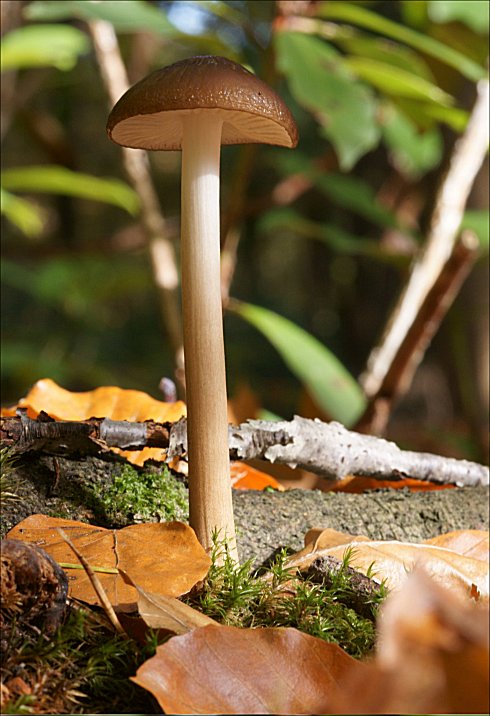
Natuurdagboek Hans Hermans October 2009
Photos Hans Hermans – Poem: John Keats
fleursdumal.nl magazine
More in: 4SEASONS#Autumn, Hans Hermans Photos, John Keats, Keats, John
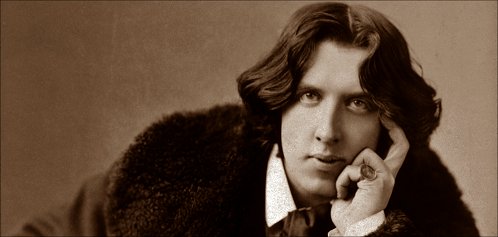
O s c a r W i l d e
(1854-1900)
The Ballad of Reading Gaol
He did not wear his scarlet coat,
For blood and wine are red,
And blood and wine were on his hands
When they found him with the dead,
The poor dead woman whom he loved,
And murdered in her bed.
He walked amongst the Trial Men
In a suit of shabby gray;
A cricket cap was on his head,
And his step seemed light and gay;
But I never saw a man who looked
So wistfully at the day.
I never saw a man who looked
With such a wistful eye
Upon that little tent of blue
Which prisoners call the sky,
And at every drifting cloud that went
With sails of silver by.
I walked, with other souls in pain,
Within another ring,
And was wondering if the man had done
A great or little thing,
When a voice behind me whispered low,
"That fellow’s got to swing."
Dear Christ! the very prison walls
Suddenly seemed to reel,
And the sky above my head became
Like a casque of scorching steel;
And, though I was a soul in pain,
My pain I could not feel.
I only knew what haunted thought
Quickened his step, and why
He looked upon the garish day
With such a wistful eye;
The man had killed the thing he loved,
And so he had to die.
Yet each man kills the thing he loves,
By each let this be heard,
Some do it with a bitter look,
Some with a flattering word,
The coward does it with a kiss,
The brave man with a sword!
Some kill their love when they are young,
And some when they are old;
Some strangle with the hands of Lust,
Some with the hands of Gold:
The kindest use a knife, because
The dead so soon grow cold.
Some love too little, some too long,
Some sell, and others buy;
Some do the deed with many tears,
And some without a sigh:
For each man kills the thing he loves,
Yet each man does not die.
He does not die a death of shame
On a day of dark disgrace,
Nor have a noose about his neck,
Nor a cloth upon his face,
Nor drop feet foremost through the floor
Into an empty space.
He does not sit with silent men
Who watch him night and day;
Who watch him when he tries to weep,
And when he tries to pray;
Who watch him lest himself should rob
The prison of its prey.
He does not wake at dawn to see
Dread figures throng his room,
The shivering Chaplain robed in white,
The Sheriff stern with gloom,
And the Governor all in shiny black,
With the yellow face of Doom.
He does not rise in piteous haste
To put on convict-clothes,
While some coarse-mouthed Doctor gloats, and notes
Each new and nerve-twitched pose,
Fingering a watch whose little ticks
Are like horrible hammer-blows.
He does not feel that sickening thirst
That sands one’s throat, before
The hangman with his gardener’s gloves
Comes through the padded door,
And binds one with three leathern thongs,
That the throat may thirst no more.
He does not bend his head to hear
The Burial Office read,
Nor, while the anguish of his soul
Tells him he is not dead,
Cross his own coffin, as he moves
Into the hideous shed.
He does not stare upon the air
Through a little roof of glass:
He does not pray with lips of clay
For his agony to pass;
Nor feel upon his shuddering cheek
The kiss of Caiaphas.
II
Six weeks the guardsman walked the yard,
In the suit of shabby gray:
His cricket cap was on his head,
And his step was light and gay,
But I never saw a man who looked
So wistfully at the day.
I never saw a man who looked
With such a wistful eye
Upon that little tent of blue
Which prisoners call the sky,
And at every wandering cloud that trailed
Its ravelled fleeces by.
He did not wring his hands, as do
Those witless men who dare
To try to rear the changeling Hope
In the cave of black Despair:
He only looked upon the sun,
And drank the morning air.
He did not wring his hands nor weep,
Nor did he peek or pine,
But he drank the air as though it held
Some healthful anodyne;
With open mouth he drank the sun
As though it had been wine!
And I and all the souls in pain,
Who tramped the other ring,
Forgot if we ourselves had done
A great or little thing,
And watched with gaze of dull amaze
The man who had to swing.
For strange it was to see him pass
With a step so light and gay,
And strange it was to see him look
So wistfully at the day,
And strange it was to think that he
Had such a debt to pay.
The oak and elm have pleasant leaves
That in the spring-time shoot:
But grim to see is the gallows-tree,
With its alder-bitten root,
And, green or dry, a man must die
Before it bears its fruit!
The loftiest place is the seat of grace
For which all worldlings try:
But who would stand in hempen band
Upon a scaffold high,
And through a murderer’s collar take
His last look at the sky?
It is sweet to dance to violins
When Love and Life are fair:
To dance to flutes, to dance to lutes
Is delicate and rare:
But it is not sweet with nimble feet
To dance upon the air!
So with curious eyes and sick surmise
We watched him day by day,
And wondered if each one of us
Would end the self-same way,
For none can tell to what red Hell
His sightless soul may stray.
At last the dead man walked no more
Amongst the Trial Men,
And I knew that he was standing up
In the black dock’s dreadful pen,
And that never would I see his face
For weal or woe again.
Like two doomed ships that pass in storm
We had crossed each other’s way:
But we made no sign, we said no word,
We had no word to say;
For we did not meet in the holy night,
But in the shameful day.
A prison wall was round us both,
Two outcast men we were:
The world had thrust us from its heart,
And God from out His care:
And the iron gin that waits for Sin
Had caught us in its snare.
III
In Debtors’ Yard the stones are hard,
And the dripping wall is high,
So it was there he took the air
Beneath the leaden sky,
And by each side a warder walked,
For fear the man might die.
Or else he sat with those who watched
His anguish night and day;
Who watched him when he rose to weep,
And when he crouched to pray;
Who watched him lest himself should rob
Their scaffold of its prey.
The Governor was strong upon
The Regulations Act:
The Doctor said that Death was but
A scientific fact:
And twice a day the Chaplain called,
And left a little tract.
And twice a day he smoked his pipe,
And drank his quart of beer:
His soul was resolute, and held
No hiding-place for fear;
He often said that he was glad
The hangman’s day was near.
But why he said so strange a thing
No warder dared to ask:
For he to whom a watcher’s doom
Is given as his task,
Must set a lock upon his lips,
And make his face a mask.
Or else he might be moved, and try
To comfort or console:
And what should Human Pity do
Pent up in Murderers’ Hole?
What word of grace in such a place
Could help a brother’s soul?
With slouch and swing around the ring
We trod the Fools’ Parade!
We did not care: we knew we were
The Devils’ Own Brigade:
And shaven head and feet of lead
Make a merry masquerade.
We tore the tarry rope to shreds
With blunt and bleeding nails;
We rubbed the doors, and scrubbed the floors,
And cleaned the shining rails:
And, rank by rank, we soaped the plank,
And clattered with the pails.
We sewed the sacks, we broke the stones,
We turned the dusty drill:
We banged the tins, and bawled the hymns,
And sweated on the mill:
But in the heart of every man
Terror was lying still.
So still it lay that every day
Crawled like a weed-clogged wave:
And we forgot the bitter lot
That waits for fool and knave,
Till once, as we tramped in from work,
We passed an open grave.
With yawning mouth the horrid hole
Gaped for a living thing;
The very mud cried out for blood
To the thirsty asphalte ring:
And we knew that ere one dawn grew fair
The fellow had to swing.
Right in we went, with soul intent
On Death and Dread and Doom:
The hangman, with his little bag,
Went shuffling through the gloom:
And I trembled as I groped my way
Into my numbered tomb.
That night the empty corridors
Were full of forms of Fear,
And up and down the iron town
Stole feet we could not hear,
And through the bars that hide the stars
White faces seemed to peer.
He lay as one who lies and dreams
In a pleasant meadow-land,
The watchers watched him as he slept,
And could not understand
How one could sleep so sweet a sleep
With a hangman close at hand.
But there is no sleep when men must weep
Who never yet have wept:
So we- the fool, the fraud, the knave-
That endless vigil kept,
And through each brain on hands of pain
Another’s terror crept.
Alas! it is a fearful thing
To feel another’s guilt!
For, right within, the sword of Sin
Pierced to its poisoned hilt,
And as molten lead were the tears we shed
For the blood we had not spilt.
The warders with their shoes of felt
Crept by each padlocked door,
And peeped and saw, with eyes of awe,
Gray figures on the floor,
And wondered why men knelt to pray
Who never prayed before.
All through the night we knelt and prayed,
Mad mourners of a corse!
The troubled plumes of midnight shook
Like the plumes upon a hearse:
And as bitter wine upon a sponge
Was the savour of Remorse.
The gray cock crew, the red cock crew,
But never came the day:
And crooked shapes of Terror crouched,
In the corners where we lay:
And each evil sprite that walks by night
Before us seemed to play.
They glided past, the glided fast,
Like travellers through a mist:
They mocked the moon in a rigadoon
Of delicate turn and twist,
And with formal pace and loathsome grace
The phantoms kept their tryst.
With mop and mow, we saw them go,
Slim shadows hand in hand:
About, about, in ghostly rout
They trod a saraband:
And the damned grotesques made arabesques,
Like the wind upon the sand!
With the pirouettes of marionettes,
They tripped on pointed tread:
But with flutes of Fear they filled the ear,
As their grisly masque they led,
And loud they sang, and long they sang,
For they sang to wake the dead.
"Oho!" they cried, "the world is wide,
But fettered limbs go lame!
And once, or twice, to throw the dice
Is a gentlemanly game,
But he does not win who plays with Sin
In the secret House of Shame."
No things of air these antics were,
That frolicked with such glee:
To men whose lives were held in gyves,
And whose feet might not go free,
Ah! wounds of Christ! they were living things,
Most terrible to see.
Around, around, they waltzed and wound;
Some wheeled in smirking pairs;
With the mincing step of a demirep
Some sidled up the stairs:
And with subtle sneer, and fawning leer,
Each helped us at our prayers.
The morning wind began to moan,
But still the night went on:
Through its giant loom the web of gloom
Crept till each thread was spun:
And, as we prayed, we grew afraid
Of the Justice of the Sun.
The moaning wind went wandering round
The weeping prison wall:
Till like a wheel of turning steel
We felt the minutes crawl:
O moaning wind! what had we done
To have such a seneschal?
At last I saw the shadowed bars,
Like a lattice wrought in lead,
Move right across the whitewashed wall
That faced my three-plank bed,
And I knew that somewhere in the world
God’s dreadful dawn was red.
At six o’clock we cleaned our cells,
At seven all was still,
But the sough and swing of a mighty wing
The prison seemed to fill,
For the Lord of Death with icy breath
Had entered in to kill.
He did not pass in purple pomp,
Nor ride a moon-white steed.
Three yards of cord and a sliding board
Are all the gallows’ need:
So with rope of shame the Herald came
To do the secret deed.
We were as men who through a fen
Of filthy darkness grope:
We did not dare to breathe a prayer,
Or to give our anguish scope:
Something was dead in each of us,
And what was dead was Hope.
For Man’s grim Justice goes its way
And will not swerve aside:
It slays the weak, it slays the strong,
It has a deadly stride:
With iron heel it slays the strong
The monstrous parricide!
We waited for the stroke of eight:
Each tongue was thick with thirst:
For the stroke of eight is the stroke of Fate
That makes a man accursed,
And Fate will use a running noose
For the best man and the worst.
We had no other thing to do,
Save to wait for the sign to come:
So, like things of stone in a valley lone,
Quiet we sat and dumb:
But each man’s heart beat thick and quick,
Like a madman on a drum!
With sudden shock the prison-clock
Smote on the shivering air,
And from all the gaol rose up a wail
Of impotent despair,
Like the sound the frightened marshes hear
From some leper in his lair.
And as one sees most fearful things
In the crystal of a dream,
We saw the greasy hempen rope
Hooked to the blackened beam,
And heard the prayer the hangman’s snare
Strangled into a scream.
And all the woe that moved him so
That he gave that bitter cry,
And the wild regrets, and the bloody sweats,
None knew so well as I:
For he who lives more lives than one
More deaths that one must die.
IV
There is no chapel on the day
On which they hang a man:
The Chaplain’s heart is far too sick,
Or his face is far too wan,
Or there is that written in his eyes
Which none should look upon.
So they kept us close till nigh on noon,
And then they rang the bell,
And the warders with their jingling keys
Opened each listening cell,
And down the iron stair we tramped,
Each from his separate Hell.
Out into God’s sweet air we went,
But not in wonted way,
For this man’s face was white with fear,
And that man’s face was gray,
And I never saw sad men who looked
So wistfully at the day.
I never saw sad men who looked
With such a wistful eye
Upon that little tent of blue
We prisoners called the sky,
And at every happy cloud that passed
In such strange freedom by.
But there were those amongst us all
Who walked with downcast head,
And knew that, had each got his due,
They should have died instead:
He had but killed a thing that lived,
Whilst they had killed the dead.
For he who sins a second time
Wakes a dead soul to pain,
And draws it from its spotted shroud
And makes it bleed again,
And makes it bleed great gouts of blood,
And makes it bleed in vain!
Like ape or clown, in monstrous garb
With crooked arrows starred,
Silently we went round and round
The slippery asphalte yard;
Silently we went round and round,
And no man spoke a word.
Silently we went round and round,
And through each hollow mind
The Memory of dreadful things
Rushed like a dreadful wind,
And Horror stalked before each man,
And Terror crept behind.
The warders strutted up and down,
And watched their herd of brutes,
Their uniforms were spick and span,
And they wore their Sunday suits,
But we knew the work they had been at,
By the quicklime on their boots.
For where a grave had opened wide,
There was no grave at all:
Only a stretch of mud and sand
By the hideous prison-wall,
And a little heap of burning lime,
That the man should have his pall.
For he has a pall, this wretched man,
Such as few men can claim:
Deep down below a prison-yard,
Naked, for greater shame,
He lies, with fetters on each foot,
Wrapt in a sheet of flame!
And all the while the burning lime
Eats flesh and bone away,
It eats the brittle bones by night,
And the soft flesh by day,
It eats the flesh and bone by turns,
But it eats the heart alway.
For three long years they will not sow
Or root or seedling there:
For three long years the unblessed spot
Will sterile be and bare,
And look upon the wondering sky
With unreproachful stare.
They think a murderer’s heart would taint
Each simple seed they sow.
It is not true! God’s kindly earth
Is kindlier than men know,
And the red rose would but glow more red,
The white rose whiter blow.
Out of his mouth a red, red rose!
Out of his heart a white!
For who can say by what strange way,
Christ brings His will to light,
Since the barren staff the pilgrim bore
Bloomed in the great Pope’s sight?
But neither milk-white rose nor red
May bloom in prison air;
The shard, the pebble, and the flint,
Are what they give us there:
For flowers have been known to heal
A common man’s despair.
So never will wine-red rose or white,
Petal by petal, fall
On that stretch of mud and sand that lies
By the hideous prison-wall,
To tell the men who tramp the yard
That God’s Son died for all.
Yet though the hideous prison-wall
Still hems him round and round,
And a spirit may not walk by night
That is with fetters bound,
And a spirit may but weep that lies
In such unholy ground,
He is at peace- this wretched man-
At peace, or will be soon:
There is no thing to make him mad,
Nor does Terror walk at noon,
For the lampless Earth in which he lies
Has neither Sun nor Moon.
They hanged him as a beast is hanged:
They did not even toll
A requiem that might have brought
Rest to his startled soul,
But hurriedly they took him out,
And hid him in a hole.
The warders stripped him of his clothes,
And gave him to the flies:
They mocked the swollen purple throat,
And the stark and staring eyes:
And with laughter loud they heaped the shroud
In which the convict lies.
The Chaplain would not kneel to pray
By his dishonoured grave:
Nor mark it with that blessed Cross
That Christ for sinners gave,
Because the man was one of those
Whom Christ came down to save.
Yet all is well; he has but passed
To Life’s appointed bourne:
And alien tears will fill for him
Pity’s long-broken urn,
For his mourners be outcast men,
And outcasts always mourn.
V
I know not whether Laws be right,
Or whether Laws be wrong;
All that we know who lie in gaol
Is that the wall is strong;
And that each day is like a year,
A year whose days are long.
But this I know, that every Law
That men have made for Man,
Since first Man took His brother’s life,
And the sad world began,
But straws the wheat and saves the chaff
With a most evil fan.
This too I know- and wise it were
If each could know the same-
That every prison that men build
Is built with bricks of shame,
And bound with bars lest Christ should see
How men their brothers maim.
With bars they blur the gracious moon,
And blind the goodly sun:
And the do well to hide their Hell,
For in it things are done
That Son of things nor son of Man
Ever should look upon!
The vilest deeds like poison weeds
Bloom well in prison-air:
It is only what is good in Man
That wastes and withers there:
Pale Anguish keeps the heavy gate,
And the warder is Despair.
For they starve the little frightened child
Till it weeps both night and day:
And they scourge the weak, and flog the fool,
And gibe the old and gray,
And some grow mad, and all grow bad,
And none a word may say.
Each narrow cell in which we dwell
Is a foul and dark latrine,
And the fetid breath of living Death
Chokes up each grated screen,
And all, but Lust, is turned to dust
In Humanity’s machine.
The brackish water that we drink
Creeps with a loathsome slime,
And the bitter bread they weigh in scales
Is full of chalk and lime,
And Sleep will not lie down, but walks
Wild-eyed, and cries to Time.
But though lean Hunger and green Thirst
Like asp with adder fight,
We have little care of prison fare,
For what chills and kills outright
Is that every stone one lifts by day
Becomes one’s heart by night.
With midnight always in one’s heart,
And twilight in one’s cell,
We turn the crank, or tear the rope,
Each in his separate Hell,
And the silence is more awful far
Than the sound of a brazen bell.
And never a human voice comes near
To speak a gentle word:
And the eye that watches through the door
Is pitiless and hard:
And by all forgot, we rot and rot,
With soul and body marred.
And thus we rust Life’s iron chain
Degraded and alone:
And some men curse, and some men weep,
And some men make no moan:
But God’s eternal Laws are kind
And break the heart of stone.
And every human heart that breaks,
In prison-cell or yard,
Is as that broken box that gave
Its treasure to the Lord,
And filled the unclean leper’s house
With the scent of costliest nard.
Ah! happy they whose hearts can break
And peace of pardon win!
How else may man make straight his plan
And cleanse his soul from Sin?
How else but through a broken heart
May Lord Christ enter in?
And he of the swollen purple throat,
And the stark and staring eyes,
Waits for the holy hands that took
The Thief to Paradise;
And a broken and a contrite heart
The Lord will not despise.
The man in red who reads the Law
Gave him three weeks of life,
Three little weeks in which to heal
His soul of his soul’s strife,
And cleanse from every blot of blood
The hand that held the knife.
And with tears of blood he cleansed the hand,
The hand that held the steel:
For only blood can wipe out blood,
And only tears can heal:
And the crimson stain that was of Cain
Became Christ’s snow-white seal.
VI
In Reading gaol by Reading town
There is a pit of shame,
And in it lies a wretched man
Eaten by teeth of flame,
In a burning winding-sheet he lies,
And his grave has got no name.
And there, till Christ call forth the dead,
In silence let him lie:
No need to waste the foolish tear,
Or heave the windy sigh:
The man had killed the thing he loved,
And so he had to die.
And all men kill the thing they love,
By all let this be heard,
Some do it with a bitter look,
Some with a flattering word,
The coward does it with a kiss,
The brave man with a sword!
THE END

O s c a r W i l d e p o e t r y
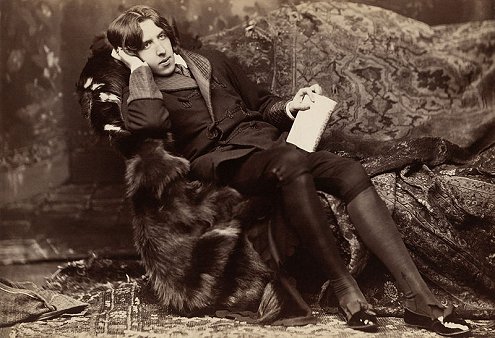
k e m p i s p o e t r y m a g a z i n e
More in: Wilde, Oscar
Thank you for reading Fleurs du Mal - magazine for art & literature